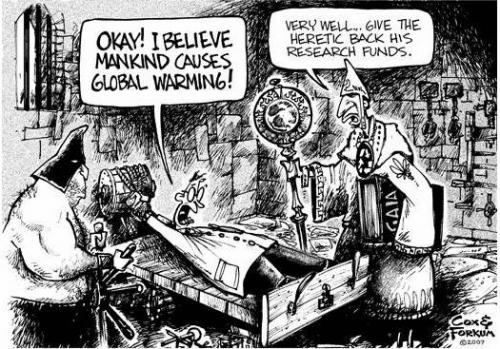Politics and Egotism over Science
Minst.org eJournal NewswatchMinst.org Watch Team
Copyright © 2009 Mednansky Institute, Inc.
Contact: martine [at] minst [dot] org
November 25, 2009
 Not
long ago, an editor of 'FEMS Microbiology Letters' gave our Chief Science Officer
some directives for reviewing an article submitted for publication. He
stated: I will express some initial concerns of mine that this seems a
bit too much what the EU is pushing – science by committee. But
then this comes from the modern Department of Galileo Galilei, and we remember
his problems when 'The Church' decided what was correct and useful or not.
Not
long ago, an editor of 'FEMS Microbiology Letters' gave our Chief Science Officer
some directives for reviewing an article submitted for publication. He
stated: I will express some initial concerns of mine that this seems a
bit too much what the EU is pushing – science by committee. But
then this comes from the modern Department of Galileo Galilei, and we remember
his problems when 'The Church' decided what was correct and useful or not.
What this editor did not seem to realize – besides the point it is unethical to influence a reviewer’s judgment – is that he was embracing a course of action similar to the one embraced by 'The Church' for Galileo Galilei. By making the statement this seems a bit too much what the EU is pushing – science by committee, not only did he emphasize the notion that science is controlled by committee, he reversed the committee’s call for this type of research. Henceforth, he became member of a 'new church' which controls science, and its outcome, by judgment of what should or should not be accepted from past and present research thereby 'shaping' tomorrow's research. In fact, what should or should not be accepted for publication in FEMS Microbiology Letters because 'this comes from' and 'we remember' instead of focusing on the quality and originality of the work only.
What is science by committee? Science by committee refers to a panel of people from different backgrounds and different countries, which must reach a consensus in deciding what to 'accept' and 'push' presumably for the benefit of science. Certainly it appears the modern Galileo Galilei is doomed again! Indeed history tells us that controversial research by independent minds usually does not meet a consensus1, and any type of control by bureaucracy is a threat to the exploring mind of a scientist.
What about exploring new avenues for discovery that could have been perceived only by the 'prepared mind'? Does not 'chance favor the prepared mind'? The prepared mind is also doomed because he may not be given the opportunity to explore these new avenues. A committee certainly cannot analyze the effects of not-yet-grasped discovery!
Researchers in an obscure field of research (that is obscure for a committee as far as outcomes) are doomed also. Among other politically correct obligations, they are told to reach out to the public thus forcing them to think in terms of application for their research, which by definition is contrary to the definition and spirit of basic – also known as fundamental – research. Success in basic research relies on building knowledge upon knowledge, and not using knowledge to an end whatever noble that end can be.
Is asking a scientist conducting basic research to reach out to the public nonsense? We will be inclined to say yes as quest for knowledge is not information, but scientists must also be aware that they depend on public 'sacrifice' through taxpayer dollars. Therefore the public is expecting discoveries the public can benefit from. To this end it may be valuable to think of an oath of office to be taken by a scientist before using taxpayer dollars to conduct basic research. The oath should stress loyalty to the public and conformity to ethics. Departure from ethics will never benefit the public; it can only, least of all, waste taxpayer dollars.
As a public servant, I swear not to be egotistic and look for personal recognition, and to follow the professional code of ethics in the conduct of my work!
Finally, instead of being forced to engage in political correctness, the inquisitive and dedicated scientist could spend more time in his laboratory engaging in basic research hopefully for the benefit of humanity. Only then, if he follows his oath of office, will he not betray the public trust whatever his achievement, as only a few will make significant discovery. And, since nobody will believe that an oath by itself will compel compliance to ethics, the oath must have consequences in law.
And this I believe: that the free, exploring mind of the individual human is the most valuable thing in the world. And this I would fight for: the freedom of the mind to take any direction it wishes, undirected. And this I must fight against: any idea, religion, or government which limits or destroys the individual. This is what I am and what I am about. I understand why a system built on a pattern must try to destroy the free mind, for that is one thing which can by inspection destroy such a system. Surely I can understand this, and I hate it and I will fight against it to preserve the one thing that separates us from the uncreative beasts. If the glory can be killed, we are lost. – John Steinbeck, East of Eden, 1952
1 In questions of science, the authority of a thousand is not worth the humble reasoning of a single individual – Galileo Galilei, 1632Do not miss Professor Bruce Charlton's The cancer of Bureaucracy, and Hal Lewis: My Resignation from the American Physical Society

Copyright © 2009 Cox & Forkum. Image use with permission from Cox & Forkum